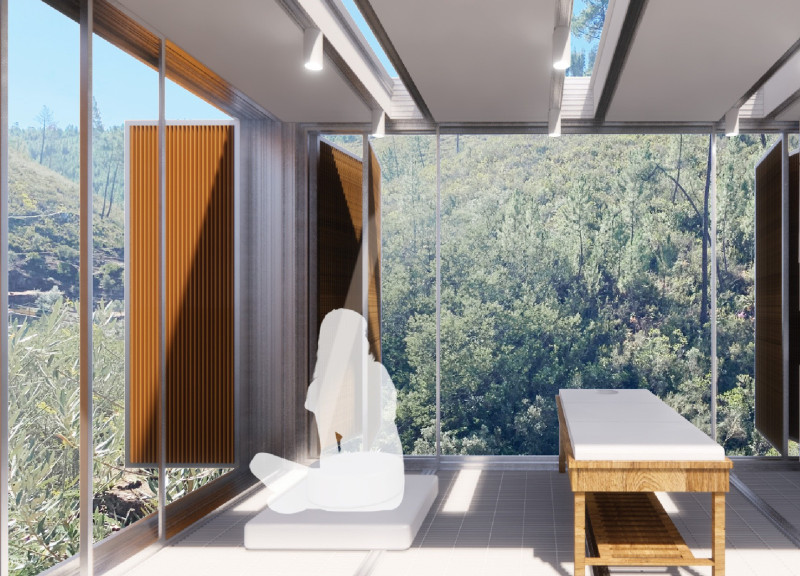5 key facts about this project
The design for a versatile cabin is situated in a tranquil natural environment, emphasizing relaxation and mindfulness. It aims to create a space where occupants can connect with both their surroundings and themselves. The overall design concept focuses on sustainability and user experience, promoting a lifestyle that harmonizes with nature. The cabin is thoughtfully organized to offer various spaces dedicated to well-being and daily activities.
Functional Areas
The cabin’s layout presents distinct areas that cater to different activities. Separate spaces for massage and meditation are included, along with essential amenities like a counter and sink. This clear organization enables users to engage fully in their chosen activities. Open areas are complemented by operable folding slat screens and sliding glazing doors, allowing fresh air and natural light to enter. These features enhance the feeling of being integrated with the outside environment.
Structural System
Attention to the structural system ensures the cabin performs well and embraces sustainability. Key components include a water tank and electricity storage, which support independent living. The operable skylight collects daylight, reducing the need for artificial lighting. The solar energy harvesting system reinforces the design’s commitment to sustainability and lower energy consumption.
Materiality and Modularity
Material choices are significant in the cabin's design, balancing performance and appearance. The roof uses adhered EPDM aluminum grate for durability and weather resistance. Rigid insulation enhances the building’s energy efficiency. The design is modular, allowing for easy assembly and disassembly. The use of a Bosche aluminum frame enclosure system contributes to resilience and adaptability, making it suitable for various locations.
Water Management
Efficient water management integrates grey water and rainwater collection systems into the cabin's design. These methods demonstrate a commitment to using resources wisely and minimizing waste. The layout encourages interaction with the surrounding landscape while allowing for modern comforts inside.
Operable elements, such as slat screens and skylights, create a continuous link between the interior and nature. The design fosters a sense of calm and connection that resonates with occupants.





















































